 W
WMilan Aćimović was a Serbian politician and collaborationist with the Axis in Yugoslavia during World War II.
 W
WNikola Arsenović is a Serb designer and illustrator of folk costume; being posthumously dubbed a "Yugoslav ethnographer". A tailor by profession, he started illustrating peasant clothing while traveling the lands after having left his family and shop due to unknown reasons. The Ethnographic Museum in Belgrade acquired most of his work, the rest having been bought by various painters.
 W
WJovan Atanacković was a Serbian general.
 W
WAleksandar Belić was a Serbian linguist and academic.
 W
WJovan Ćirković, known as Čifa (Чифа) or Ćirko-paša (Ћирко-паша), was a Serbian teacher, revolutionary (Chetnik) during the Macedonian Struggle, and politician.
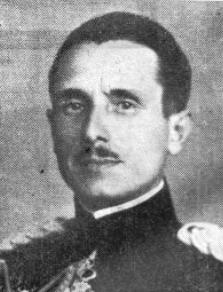 W
WVladimir Cukavac was a Serbian general holding the title of army general in the Royal Yugoslav Army. He commanded the 5th Army during the German-led Axis invasion of Yugoslavia of April 1941 during World War II.
 W
WLjubomir S. Jovanović, known as Ljuba Čupa, was a Serbian guerilla fighter, member of the Black Hand, soldier in the Balkan Wars, and journalist.
 W
WDragiša Cvetković was a Yugoslav politician active in the Kingdom of Yugoslavia.
 W
WVladimir Dedijer was a Yugoslav partisan fighter during World War II who became known as a politician, human rights activist, and historian. In the early postwar years, he represented Yugoslavia at the United Nations and was a senior government official.
 W
WDušan Dimitrijević, known as Vojvoda Dule, was a Serbian Chetnik commander active in Old Serbia during the Macedonian Struggle, also participating in the Balkan Wars and as a regular soldier in the First World War.
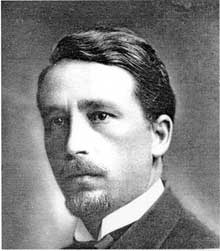 W
WIvan Đaja was a Serbian biologist, physiologist, author and philosopher.
 W
WSvetomir Đukić was the founder of the Olympic Committee of Serbia, an officer in the Serbian Army and a general in the Chetnik movement.
 W
WPetar "Pera" Dobrinović was a Serbian actor and director at the Serbian National Theatre in Novi Sad.
 W
WGerman was the 43rd Patriarch of the Serbian Orthodox Church from 1958 to 1990. He was successful in revitalizing the Serbian Orthodox Church to a certain extent during the Communist period, despite two schisms that occurred during his tenure.
 W
WMilorad Gođevac was the organizer of the Serbian Chetnik Organization, a doctor by profession.
 W
WJovan "Jova" Ilić was a Serbian poet and politician.
 W
WIvan Ivanić was a Serbian diplomat of the Kingdom of Serbia and author of numerous ethnographical works about Serbia and the Balkans. He also wrote travel literature about the region of Old Serbia.
 W
WGolub S. Janić was a Serbian millionaire, MP, benefactor, and the most influential personality among the Serbs from Macedonia living in Serbia at the beginning of the 20th century.
 W
WDavorin Jenko was a Slovene composer. He is sometimes considered the father of Slovenian national Romantic music. Among other songs, he composed the melody for the Serbian national anthem "Bože pravde", the former Slovenian national anthem "Naprej, zastava Slave", and the popular Serbian and Montenegrin song "Onamo, 'namo!".
 W
WBranivoje Jovanović, known by the nom de guerre Brana (Брана), was a Chetnik vojvoda (commander).
 W
WDragomir "Dragi" Jovanović was a Serbian politician and Axis collaborator who served as the mayor of Belgrade from 1941 to 1944, during World War II. He was captured by communist forces on December 11, 1945 in Munich in Allied occupied Germany following the war and tried alongside other Serbian collaborationist leaders in 1946. He was found guilty of collaborating with Reinhard Heydrich and Heinrich Himmler and other German officials and executed in Belgrade.
 W
WLjubomir Jovanović was a Serbian politician and historian. He was a professor at the University of Belgrade since its establishment in 1905, a member of the SKU, Minister of Education, Minister of Internal Affairs and member of the State Council.
 W
WSvetislav Jovanović was a Serbian Realist painter.
 W
WRadoje Knežević was a key member of the group that organised the Yugoslav coup d'état of 27 March 1941 that deposed the regency of Prince Paul, Dr. Radenko Stanković and Dr. Ivo Perović, along with the government of Prime Minister Dragiša Cvetković. Following the coup he was appointed as the Minister of the Royal Court, and after the resulting invasion of Yugoslavia, he accompanied the King and government into exile in Cairo then London. Along with his brother Živan, he was a member of the so-called "League of Majors", who were at the centre of the ill-fated Greater Serbian agenda of the Yugoslav government-in-exile and who were instrumental in having Draža Mihailović appointed as Chief of Staff of the Yugoslav Supreme Command. He was sidelined in June 1943 when he was appointed to the Yugoslav legation in Portugal. He remained in exile after the war, was sentenced to 10 years imprisonment with hard labour in absentia during the Belgrade Process conducted by the country's newly established communist authorities, and emigrated to Canada where he lived until his death in 1983.
 W
WLazar Koliševski was a Yugoslav communist political leader in the Socialist Republic of Macedonia and briefly in the Socialist Federal Republic of Yugoslavia. He was closely allied with Tito.
 W
WMilojko Lešjanin was a Serbian military officer and politician. He served as Minister of Army and Chief of the Serbian General Staff for several times in the 1870s and 1880s. As corps and army commander he took part in the wars with Ottoman Turks and Bulgarians in 1876–1885. He led the Serbian troops at the conquest of Niš in 1877 and at the blockade of Vidin in 1885.
 W
WDimitrije Ljotić was a Serbian and Yugoslav fascist politician and ideologue who established the Yugoslav National Movement (Zbor) in 1935 and collaborated with German occupational authorities in the Territory of the Military Commander in Serbia during World War II.
 W
WVojislav Lukačević was a Serbian Chetnik commander in the Kingdom of Yugoslavia during World War II. At the outbreak of war, he held the rank of captain of the reserves in the Royal Yugoslav Army.
 W
WKonstantin "Kosta" P. Manojlović was a Serbian composer, ethnomusicologist, educator and choral conductor.
 W
WAleksandar Mašin was a Serbian military officer of Czech descent. As a colonel of the Royal Serbian Army, he was one of officers that staged the May Coup of 1903 against King Alexander I of Serbia.
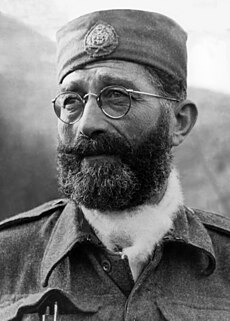 W
WDragoljub "Draža" Mihailović was a Yugoslav Serb general during World War II. A staunch royalist, he retreated to the mountains near Belgrade when the Germans overran Yugoslavia in April 1941 and there he organized bands of guerrillas known as the Chetnik Detachments of the Yugoslav Army.
 W
WDionisije Milivojević was a Serbian Orthodox bishop who served as Bishop of America and Canada from 1939 to 1964.
 W
WMiloje Milojević was a Serbian composer, musicologist, music critic, folklorist, music pedagogue, and music promoter.
 W
WMiloš S. Milojević was a Serbian lawyer, writer, historian, and politician. His work has been described as "at a ridge between history and literature", mostly for his travel-recording genre.
 W
WŽivojin Milovanović, known by his nickname Žika, was a Serbian soldier, member of the Serbian revolutionary Chetnik Organization that fought in Old Serbia and Macedonia.
 W
WJovan Naumović was an Armijski đeneral in the Royal Yugoslav Army who commanded the 3rd Territorial Army during the German-led Axis invasion of Yugoslavia of April 1941 during World War II. Naumović's command consisted of three infantry divisions and some smaller formations. The 3rd Territorial Army was part of the 3rd Army Group which was responsible for the border with Albania between Lake Ohrid to Lake Skadar, and the Romanian and Bulgarian borders between the Iron Gates and the Greek border.
 W
WMilutin Đ. Nedić was a Yugoslav Armijski đeneral and Chief of the General Staff of the Royal Yugoslav Army prior to the outbreak of World War II. He was replaced in late 1938, and later commanded the 2nd Army Group during the German-led Axis invasion of Yugoslavia of April 1941. Nedić's command consisted of General Milan Rađenković's 1st Army, responsible for the area between the Danube and the Tisza, and the 2nd Army of General Dragoslav Miljković, responsible for the border from Slatina to the Danube. Nedić had no Army Group reserve, but the 2nd Army was to constitute a reserve of one infantry division deployed south of Slavonski Brod.
 W
WLjubomir Nenadović was Serbian writer, poet, translator, diplomat, minister of education and member of the Serbian Royal Academy.
 W
WMilan George Obrenovic born Obren Christich was the natural son of King Milan I of Serbia and his Greek mistress Artemisia Hristić. After the regicide of his half brother King Alexander in 1903 George became a claimant to the Serbian throne in opposition to the new king, Peter I Karadordevic before ending his life in obscurity.
 W
WJosif Pančić was a Serbian botanist, Doctor of Medicine, a lecturer at the Great School, the future University of Belgrade, and the first president of the Serbian Royal Academy. He extensively documented the flora of Serbia, and is credited with having classified many species of plants which were unknown to the botanical community at that time. Pančić is credited for discovering the Serbian Spruce. He is regarded as the father of Serbian botany.
 W
WVasilije "Vasa" Pelagić was a Bosnian Serb writer, physician, educator, clergyman, nationalist and a proponent of utopian socialism among the Serbs in the second half of the nineteenth century. Today he is considered one of the first theoreticians of physical education in the Balkans. He is also remembered as a revolutionary democrat and one of the leaders of the national liberation and socialist movement in Serbia and Bosnia-Herzegovina.
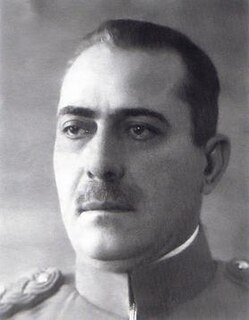 W
WMilorad Petrović was an Armijski đeneral in the Royal Yugoslav Army who commanded the 1st Army Group during the April 1941 German-led Axis invasion of Yugoslavia of World War II. Petrović was commissioned into the Royal Serbian Army in 1901 and served in multiple staff positions during the Balkan Wars. During World War I, he served in various staff roles at the army and divisional level during the Serbian Campaign and later on the Macedonian Front. Following the war, he took part in military operations along the disputed northern border of the nascent Kingdom of Serbs, Croats and Slovenes, which was renamed the Kingdom of Yugoslavia in 1929. During the interwar period, Petrović was steadily promoted, performing key roles at the Ministry of the Army and Navy. He reached the rank of armijski đeneral in 1937. At the time of the 27 March 1941 Yugoslav coup d'état, he was the military commander of the Yugoslav capital, Belgrade.
 W
WMilan Piroćanac was a Serbian jurist, politician, Prime Minister and the leader and founder of the Progressive Party.
 W
WJustin Popović was a Serbian Eastern Orthodox theologian, archimandrite of the Ćelije Monastery, Dostoyevsky scholar, writer, an advocate of anti-communism and a critic of the pragmatic church ecclesiastical life.
 W
WKonstantin "Koča" Popović was a Yugoslav politician and communist volunteer in the Spanish Civil War, 1937–1939 and Divisional Commander of the First Proletarian Division of the Yugoslav Partisans. He is on occasion referred to as "the man who saved the Yugoslav Partisans", because it was he who anticipated the weakest point in the Axis lines on the Zelengora–Kalinovik axis, and devised the plan for breaking through it during the Battle of Sutjeska, thus saving Tito, his headquarters and the rest of the resistance movement. After the war, he served as the Chief of the General Staff of the Yugoslav People's Army, before moving to the position of Foreign Minister and spent the final years of his political career as the Vice President of Yugoslavia.
 W
WPavle Popović was a Serbian literary critic and historian, a professor and rector at the University of Belgrade. He is the brother of Bogdan Popović, also a well-known and equally influential literary critic and university professor.
 W
WBogdan Radenković was a Serb activist, an organizer of the Serbian Chetnik Organization and one of the founders of the Black Hand. He was a leading civilian activist of the Pan-Serb movement in the early 20th century. In a letter to the Serbian government, dated 27 October 1909, he tells about the dangers faced by the population of Kičevo and Prilep because of Arnaut incursions, and asks for approval of the troops of Gligor Sokolović and Dane Stojanović to solve the problem.
 W
WPredrag Raković was a Yugoslav military officer who joined the Chetnik forces of Draža Mihailović after the Axis invasion of Yugoslavia in April 1941 during World War II. He became commander of the Chetnik 2nd Ravna Gora Corps and collaborated with the German-installed puppet government in the German-occupied territory of Serbia and later directly with the Germans against the rival communist-led Yugoslav Partisans. His forces briefly cooperated with Soviet forces against the Germans in October 1944, but faced with Soviet demands that they lay down their weapons or join the Partisans, they withdrew from occupied Serbia.
 W
WVladislav F. Ribnikar was a Serbian journalist, known for founding Politika, the oldest Serbian daily. He led the newspaper from the day it was founded in 1904 until his death in combat in 1914.
 W
WIlarion (Jovan) Ruvarac was a Serbian historian and Orthodox priest, a member of the Serbian Academy of Sciences and Arts. Ruvarac introduced the critical methods into Serbian historiography. He was archimandrite of Grgeteg monastery. His three brothers were all distinguished—the eldest, Lazar Ruvarac, as a high government official; the second, Kosta Ruvarac (1837–1864), as a writer and literary critic; and the youngest, Dimitrije Ruvarac, as a historian, Orthodox clergyman, politician and one of the most active publishers of his time.
 W
WDušan Simović was a Serbian general who served as Chief of the General Staff of the Royal Yugoslav Army and as the Prime Minister of Yugoslavia in 1940-1941.
 W
WGligor Sokolović was one of the supreme commanders of the Serbian Chetnik Movement, that fought the Ottoman Empire, Bulgarian, and Albanian armed bands during the Macedonian Struggle. He was one of the most famous Chetniks, and the foremost in Western Povardarie. In Bulgaria he is considered a Bulgarian renegade who switched sides, i.e. (sic) Serboman.
 W
WDragan Mihajlo Sotirović was a Serb Chetnik, Captain of the Yugoslav Army, and Major of the Home Army’s 14th Regiment of Jazlowiec Uhlans. For his service and bravery, Sotirovic was awarded the Virtuti Militari.
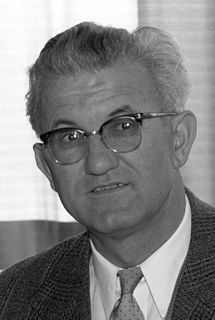 W
WPetar Stambolić was a Serbian communist politician who served as the President of the Federal Executive Council of Yugoslavia from 1963 to 1967 and as President of the Presidency from 1982 until 1983.
 W
WDragiša M. Stojadinović, known by his nom de guerre Krajinac (Крајинац), was a Serbian soldier, lawyer, politician, photographer and filmmaker.
 W
WTadej (Thaddeus) of Vitovnica was a Serbian Orthodox elder and published author, credited for proposing the idea that our thoughts determine the outcome of our lives. He was a hegumen of the Vitovnica monastery and a spiritual father.
 W
WMilutin Uskoković was a Serbian short story writer and soldier.
 W
WMiloje Vasić was a Serbian archaeologist, regarded as one of the most distinguished representatives of the humanistic studies in Serbia.
 W
WSreten Žujović was a Serbian and Yugoslav politician and veteran of World War I and long-time communist.